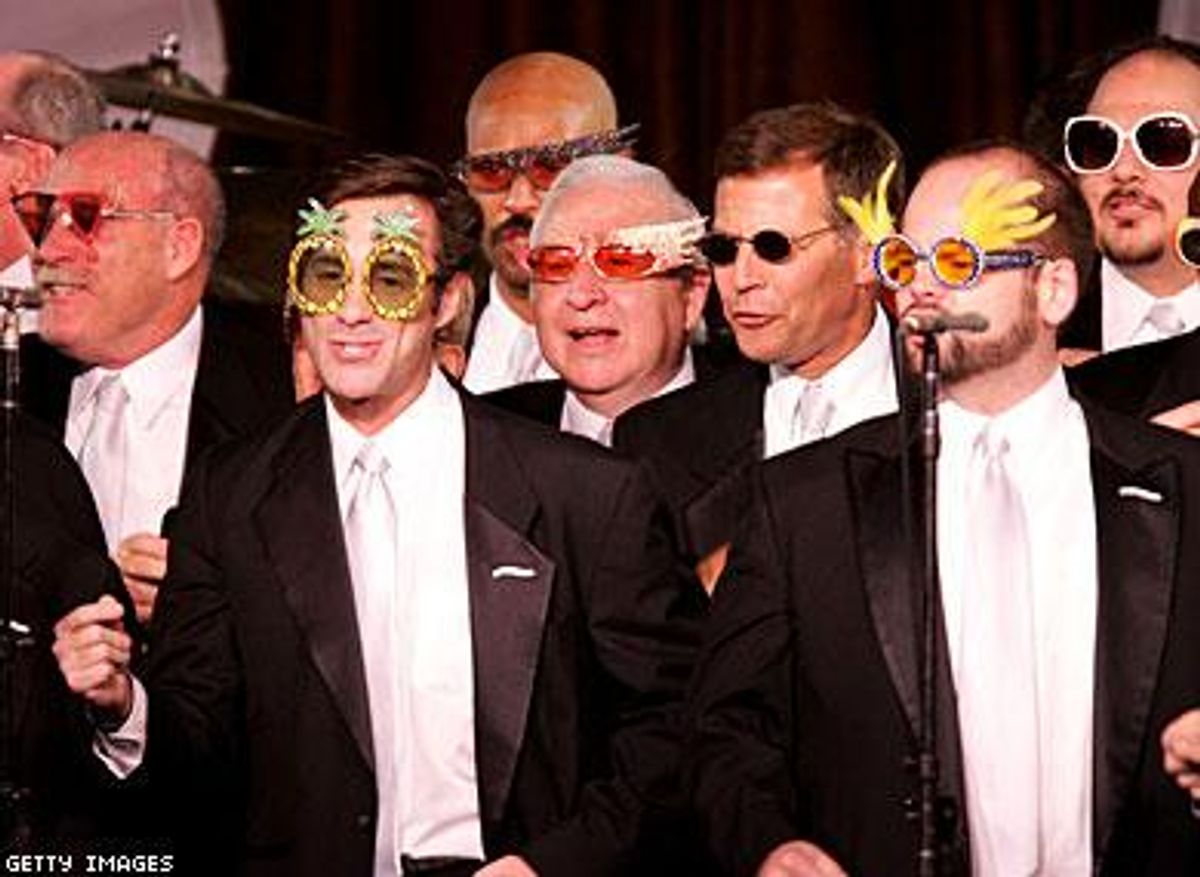
CONTACTAbout UsCAREER OPPORTUNITIESADVERTISE WITH USPRIVACY POLICYPRIVACY PREFERENCESTERMS OF USELEGAL NOTICE
© 2025 Equal Entertainment LLC.
All Rights reserved
All Rights reserved
By continuing to use our site, you agree to our Private Policy and Terms of Use.
As he turned 50, Joe Bondi found himself increasingly isolated, depressed, and drifting back into a largely closeted lifestyle. Living in Modesto, Calif., nearly 100 miles from the gay mecca of San Francisco, he became consumed with his work as a real estate agent and slogged away the hours among colleagues who might've known he was gay but around whom he felt uncomfortable sharing much about himself or his sexuality.
After joining the San Francisco Gay Men's Chorus, he began to make a turnaround. Firstly, anxieties about his advancing age began to dissipate.
"We're kind of like big and little brothers through the universal gift of music," Bondi says of his singing brethren. "And when I go into the room, I don't look at older and younger."
Now 53, Bondi says he can be himself around his work colleagues.
"I was sharing with the others how much fun I was having in the chorus," he recalls. "And then I got brave and I just said, 'You know what, I'm going to start putting up the posters for the chorus performances. The more I talked, the more comfortable I felt. Now, every time there's a new performance, I've got the poster up in the window and people asking me, 'Can I get tickets?'"
"Depression is a disease of isolation," says David McDowell, a psychiatrist in private practice in Manhattan, "anytime you can get a depressed person to affiliate, or to do something, or to join a group that will have a purpose--whether that's fun recreation or some greater purpose--that's going to significantly alleviate symptoms of the depression and the cause of isolation."
As a socially stigmatized group, gay men may particularly benefit from an affirmative sense of belonging to a larger community. Stigma can accentuate feelings of isolation and alienation and put a dent in self-esteem. Research has shown that a sense of "collective self-esteem" comes when people feel that their membership in a larger group has value.
Jack Drescher, the author of Psychoanalytic Therapy and the Gay Man and a psychotherapist in private practice in New York City, said that many of the men he counsels are reluctant to hit the bar scene to meet people--in his mind, for good reason.
"Bars are there to sell liquor," he says. "They're not there to help people with socialization. Often they're very alienating places. There are other ways in which people can organize themselves: around sports, around politics, around professional interests."
Jeff Kagan, the cofounder and director of the New York City Gay Hockey Association, touts the benefits of joining a sports team.
"Some gay men might feel excluded in their lives from their own families," he says. "This fills in that gap and gives you a feeling of brotherhood. It makes you feel like you have another home."
A sense of victory can't hurt either. One of his teams, the Lions, is a consistent league champ.
"They play against the straight teams and they beat their butts!" boasts Kagan.
Gay teens in particular, perhaps facing difficulties with homophobia as they negotiate their way out of the closet, and who as a demographic are at high risk for suicidal depression, can benefit immeasurably from a sense of inclusion. According to Carolyn Laub, executive director of the Gay-Straight Alliance Network, a nonprofit advocacy group based in San Francisco, there are an estimated 4,000 GSAs in U.S. high schools and even middle schools.
"There's no question that for young people all over the country access to a gay-straight alliance club can be lifesaving," Laub says. "In particular it helps you know as a young gay person that you're not alone in whatever your struggles may be regarding coming out or facing harassment at school. The gay-straight alliance club can be a safe haven and a place to feel supported, to have a connection to your community, and to have allies."
From our Sponsors
Most Popular
31 Period Films of Lesbians and Bi Women in Love That Will Take You Back
December 09 2024 1:00 PM
18 of the most batsh*t things N.C. Republican governor candidate Mark Robinson has said
October 30 2024 11:06 AM
True
These 15 major companies caved to the far right and stopped DEI programs
January 24 2025 1:11 PM
True
Latest Stories
The Kilted Age: Claybourne Elder on parenting, queer history, and fashion
April 12 2025 12:30 PM
New Trump Medicaid directive attacks trans people's access to gender-affirming care
April 11 2025 6:28 PM
Out gay Colorado Gov. Jared Polis signs law repealing marriage equality ban
April 11 2025 3:11 PM
How doctors became providers of hope and our kids' last line of defense
April 11 2025 7:00 AM
Even in liberal Massachusetts, Republicans are attacking trans athletes
April 10 2025 5:02 PM












































































Fans thirsting over Chris Colfer's sexy new muscles for Coachella